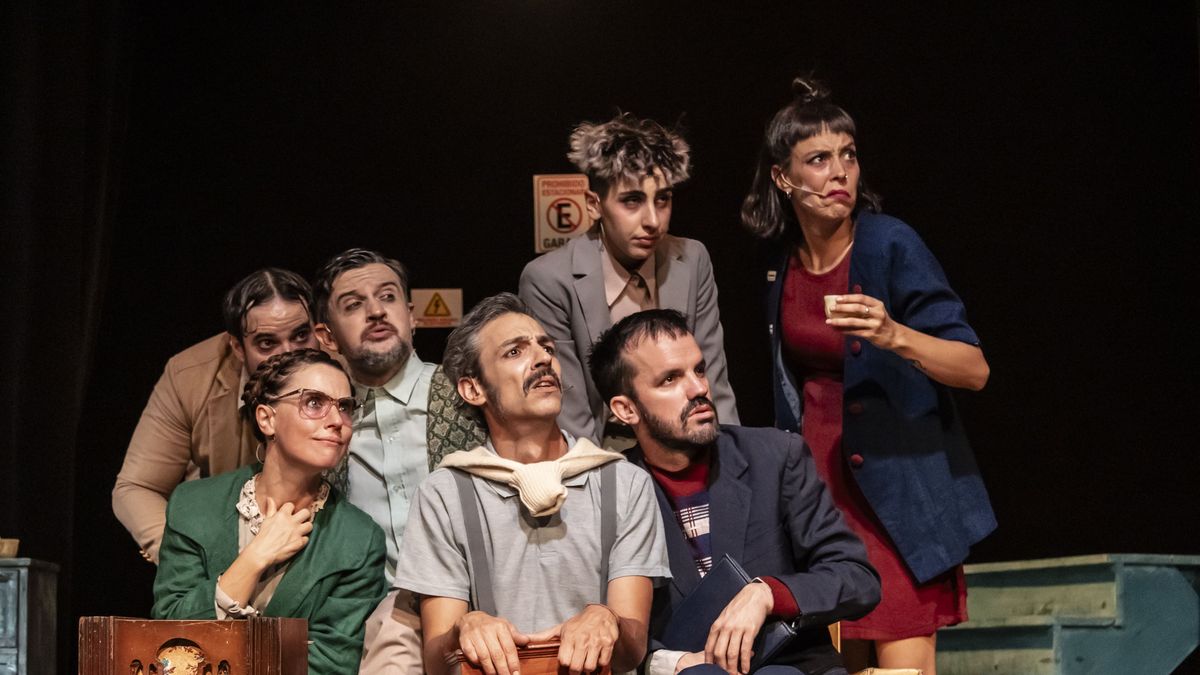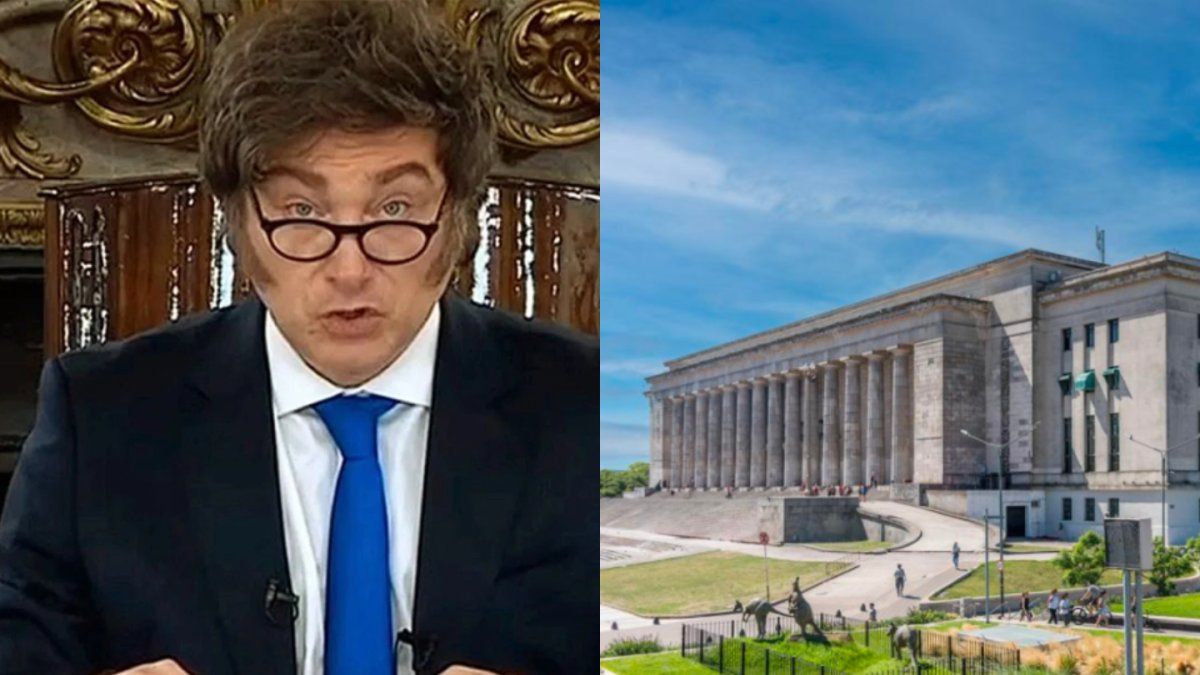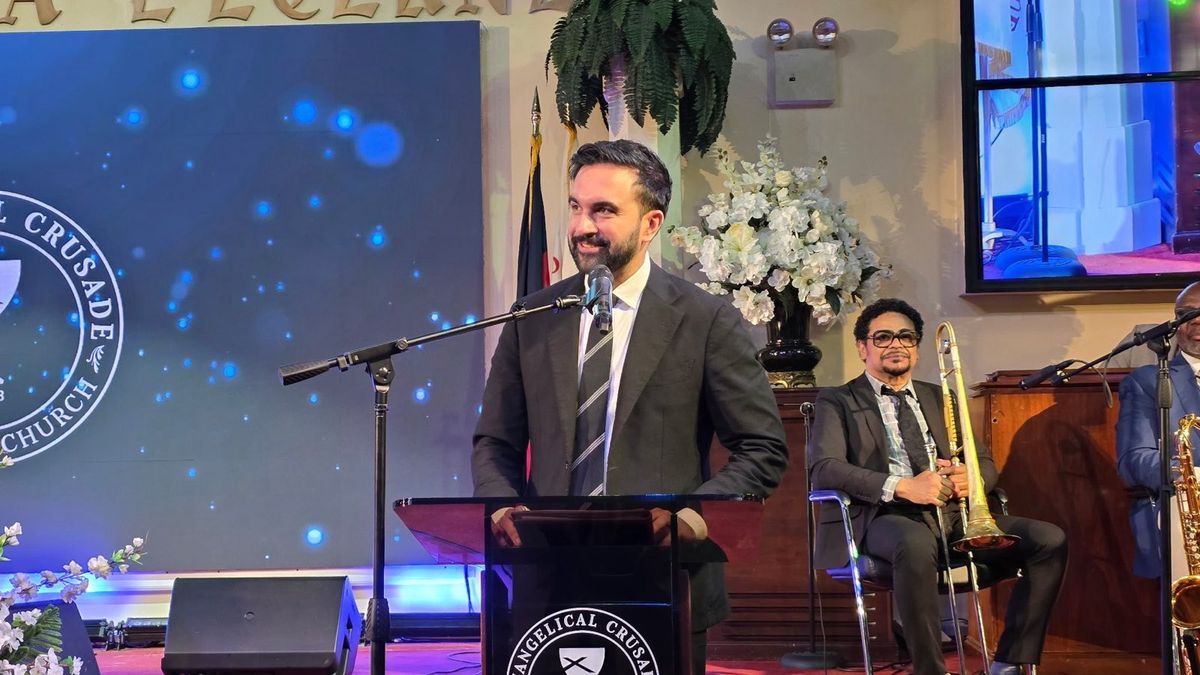“We no longer think of being only binary beings, we advance in a whole that deepens the bonds, the relationship with the family, with self-love, with the social and with the material,” says Fernanda Provenzano, author and director with Nicolas Manasseri of “The funeral of objects”, who return on Tuesday, January 7 to Paseo La Plaza in the fifth season of the work, after offering performances in that room this year and after a successful tour of the off. The performances will be on Tuesdays at 8:30 p.m.
It is a “funeral ritual” so that characters and the public can let go of those objects and situations that cannot be let go. For the authors, “Art heals, art transforms and for us this work represents a set of all of this, the possibility of transforming reality, of facing those duels and attachments again from humor, the absurd and the musical to “That a funeral becomes a party of emotions and reflection through theater.”
We spoke with the creative duo Provenzano-Manasseriwho also make up the cast that is completed with Eugenia Fernández, Víctor Hugo Araguas, Martina Alonso, Matías Zajic, Rafael Escalante and Daniela Rubiatti.
Journalist: What are these characters like?
Nicolás Manasseri: They are borderline, at times panicky, recurrent, phobic and they give themselves the absurd excuse of going to this alternative and crazy therapy after having found an advertising pamphlet on the subway. The slogan reads: “Your life is a misery. You can’t get rid of your object, get rid of it. In a world where material things are imposed on us, we use language to communicate but we also make ourselves incomprehensible to others. We not only treat objects as people but people as objects. In these objects we often deposit mandates, frustrations, memories, lived moments that constitute us and are part of who we are.
Fernanda Provenzano: From the beginning they are characters bursting from reality, who, although they generate a very high degree of identification in the public, are somewhat exacerbated to highlight certain traits and generate humor. The capitalist system forces us to run after the individual and sometimes we forget who we have next to us. We are also more awake in terms of types of relationships, bonding has also evolved as we recognize ourselves as more complex individuals.
Q: How do the current links marked by virtuality play?
FP: Precisely in the virtual and in non-presentation we end up connecting with the other through an object, we see the other person inside a computer or a telephone and that being ends up being and being an object in itself. Although technological advancement has made us advance rapidly in everything, socially it has also caused us to change our ties, many times for the better and others for the worse.
NM: It is difficult to think of virtuality outside the scope of communication and relationships mediated by objects. Although progress is clearly on the side of the computer revolution, the web and social networks, what would they be without the device? The work follows an imaginary and symbolic path where the importance lies in the affection we place in a material and obsolete object, however, we do not fail to notice the identification of the public since the unnecessaryness of the object reveals the contradictory idea that It may not be of much use anymore but there is something about it in me that makes me depend on it and continue giving it life instead of throwing it away. Virtuality gives the object the true need for use, and places these objects more in the order of a new tool mediated by technology.
Q: How is the story told in a musical way? Sometimes the public flees to musicals, why?
NP: Many people don’t like musicals but others are fans. Music in general achieves more fanaticism than theater and is much more popular. Music consumes everyone but theater does not. It is true that there are many people who do not like musicals, and perhaps that is an incentive for us, this is a work of musical theater, the basis is the theater on which the music was created and performed thinking about the stage event.
FP: The music comes to tell us part of the therapy and to help the story of the characters in their desperation to get rid of their objects, and in other moments it bursts in almost violently to break the scene and relate what is not said, which within the therapy provides the coach with psychoanalytic content of the situation presented, and that hides a certain scenic darkness. The national musical theater has grown a lot in recent times and has proven to be full of content. It is very complex to do but it shows more professionalism, from those of us who come from self-management to large production companies. I live with the idea that the fusion between theater and musical theater is better and deeper; understand that the artistic fact is a fact in itself, without prejudice to labels, which may be liked more or less. The public leaves behind prejudices when it comes to watching a musical, so we continue trying to debunk myths imposed by those who believe they will not like it because it is a musical.
Q.: The musical often has that explicit search for a message that makes it solemn.
FP: It is a shame when works fall into solemnity, perhaps we err on the side of looking for messages that ultimately do not represent us very much and at the same time we lose sight of the viewer. If we do theater just to satisfy our desire, it is likely that our message will be a little more limited and everything will be ephemeral.
NM: The idea of spectacularity is not incompatible with depth. I think that in the commercial machinery we should bet more on Argentine authors who talk about our problems, that will be a good way to become independent from distant formats, to let go of the stuffy, the perfection and the foreign or stories already told that take us to a theater more formal and solemn.
Q: How did you experience the jump from off to on?
FP: Obviously the commercial circuit is a large screen, the window becomes wider and the visibility of what we want to express will also be greater. After two years of uninterrupted performances in the independent theater, the play on its own was arriving at this place, without pushing it, without putting pressure on it to happen. The process was very consistent with what the work was asking for and what it generates to sustain itself, beyond everything we take care of it. In the independent we were able to sustain it thanks to the repercussions and returns, the famous word of mouth worked, the same in the commercial.
NM: While we made some improvements to the set when we moved to a larger theater, the level of production was always on par with commercial theater. Musical theater is expensive to perform because there are live instruments, wireless microphones, a great display of scenery and costumes, but now we will have a stage that is a luxury, we will reach a different audience that is more accustomed to street shows. Currents. Being there is a huge advertising window.
Source: Ambito
David William is a talented author who has made a name for himself in the world of writing. He is a professional author who writes on a wide range of topics, from general interest to opinion news. David is currently working as a writer at 24 hours worlds where he brings his unique perspective and in-depth research to his articles, making them both informative and engaging.




